By Nnaoke Ufere, PhD
As we enter 2023, two camps of Nigerians have emerged: The Optimists and the Pessimists. Obviously, they hold two contrary perspectives about our current circumstances and the future direction of the country.
Disillusionment with Nigeria’s political malpractices, violent extremism, seemingly ineradicable corruption and government inefficiencies, high unemployment and low wages, compel some Nigerians to see a country racing to the bottom.
But on the other hand, others see an evolving country, endowed with remarkable human capital and entrepreneurial spirit, and an emerging economic power with significant future promise, if only we come together to build a solid foundation upon which the nation flourishes.
We interviewed many Nigerians at home and in the diaspora to capture their views of the country, but more importantly, how we can bridge the divide that separates us and together rebirth a new nation which is more secure, more prosperous, more just and freer for all Nigerians.
The Optimists
In one camp are the optimistic Nigerians who profess that barely 62 years post-independence, Nigeria still has its best years ahead of it. To put it in perspective, they remind us that it took the United States of America about 120 years post-independence from the same British Empire in 1776 to achieve economic independence, prosperity and freedom.
These patriotic Nigerians, argue that the nation is a “sleeping giant”, endowed with abundant human and natural resources. They believe deeply that one day in the near future, with effective leadership, the creativity, industry and resilience of hardworking Nigerians will become a source of innovative entrepreneurship, economic growth and social development.
They counsel that our current problems are inevitably linked to “growing pains” that come with nation building. At sixty-plus, these optimistic Nigerians describe our country in the metaphor of a rebellious and mistake-prone teenager in the transitional stage into adolescence and later, adulthood.
In another metaphor, and paraphrasing Bob Dylan and President Jimmy Carter, they see Nigeria as “busy being born, not busy dying.” To them, the promise of Nigeria is in its future as we rebirth it and nurture it to become the nation we all desire, and not in its checkered past.
According to these Nigerians, without this collective rebirthing process, Nigeria is “busy dying.” They affirm that the promise of justice, security, freedom and equality in our motherland is worth the rebirthing pains we currently face.
Notwithstanding our growing pains and missteps, they point to the progress our country has made:
- Built emergent democratic institutions (however imperfect these institutions are today, they represent progress from our nation’s history of non-democratic governance).
- Established the framework for a progressive civil society: judicial and electoral reforms – even when adoption of these frameworks varies from state to state in the country.
- Built the top economy in Africa by GDP even when the benefits have not trickled down to long-suffering Nigerians at the bottom of the pyramid.
- Held the country together and avoided another devastating civil war, despite all our rifts and conflicts.
- Maintained relative peace and stability within the African sub-region – we are a regional superpower.
- Legitimized the country as a democracy in the eyes of the international democratic community.
- Established the foundations of a free and independent press – one of the few free media in Africa, despite occasional government meddling.
- Facilitated the implementation of due process in governance and the introduction of levels of transparency and accountability in the public sector.
- Implemented a successful reform of financial institutions, including a dysfunctional banking system.
- Improved infrastructure such as new road networks, airports and rail systems in key economic zones.
To these Nigerians, these achievements are proof that Nigeria’s best days are yet to come.
They believe that our nation with about 220 million consumers has the domestic market scale and human potentiality to become a developed nation in the decades ahead.
They suggest that once electric power is made available, Nigeria will unleash its suppressed entrepreneurialism and manufacturing power to displace China and India in the low-value added products, while China and India move up the value chain.
They remind us that the current system in which petrodollars fuel corruption and mismanagement is being hurried out of existence by the impact of declining oil consumption around the globe and low commodity prices, to be replaced by a new Nigerian economy powered by innovation, high productivity, which will deliver well-paying jobs for anyone who wants a job.
However, they concede that despite these achievements, significant challenges exist, and the economic rising tide did not lift all boats, particularly in translating benefits into welfare improvements for the majority of citizens.
But they ask Nigerians for patience and promise that better days are coming and that the Lord is not done with Nigeria. They caution Nigerians to see what is good in Nigeria and not just what is not working. They warn: Enough of the doom and gloom.
The Pessimists
The pessimists see our country not as a sleeping giant but a giant in vegetative state – paralyzed and comatose. They characterize Nigeria as a country full of paradoxes, miscalculations and insurmountable problems. They see a failed country:
- Where poverty is pervasive despite our natural resource endowment.
- Where the economy is unproductive, growth is stagnated, if not in decline in real GDP terms. In 1970, Nigeria’s economic growth in terms of GDP per capita was far ahead of Thailand, Malaysia, India, China and Indonesia. Today, these countries have transformed their economies and Nigeria has fallen far behind.
- Where 80% of its citizens live below acceptable subsistence level of income resulting in the country having the world’s highest number of malnourished children – 13 million in 2022.
- Where wealth disparity is the largest in the developing world, where 90% of national wealth is concentrated in the hands of the top 5% of wealthy Nigerian.
- Where the wealthy can afford to get high quality healthcare abroad and the rest have limited or no access to basic healthcare. They point to the comparatively low average life expectancy of ordinary Nigerians – 55 years in 2021 as evidence.
- Where the rich can afford to send their children to high-priced colleges abroad and private institutions at home while the majority rot away in underfunded local educational institutions with inadequate basic infrastructure, where teachers don’t teach and student don’t learn.
- Where a lost generation of uneducated and undereducated college graduates are unemployable and may never contribute productively to themselves, their communities and society at large. Today the highest unemployed are among the 15 to 24-year-olds in our country. Youth unemployment was above 45% in 2022.
- Where current culture of kidnapping, murder and escalation in armed robbery are symptoms of prevalent economic inequity, religious bigotry, insidious social marginalization and a lack of cognitive moral development in the society in general.
- Where over $500 billion (estimated) in development projects have been funded since independence with only dilapidated infrastructure to show for it.
- Where power supply is at best epileptic and out of supply for everyday Nigerians who can’t afford electric generators. The yearly promise to supply clean drinking water and electricity to millions of ordinary Nigerians is yet to be accomplished.
- Where in spite of progress made on due process and fraud control, corruption remains systemic. Self-interested and corrupt government officials and politicians and unscrupulous citizens siphon stolen money out of the country and launder others in real estate and foreign bank accounts.
- Where significant amount of funds the government budget is wasted to pay a bloated bureaucracy – one of the most expensive bureaucracies in modern democracy.
- Where serial failures in leadership and chronic apathy of followers and citizens combine to ruin the nation.
They conclude that faced with all of these inequalities and inequities, it is very difficult to even live a moral life, let alone exercise moral leadership in Nigeria.
In synthesis, the two camps are populated by patriotic Nigerians. If you strip out the exaggerations you will agree that there is merit to both arguments presented. We’ve made progress but we have a hard road ahead.
Nigerians are impatient; rightly so.
And there is a sense of heightened uncertainty in the country today. How long can Nigerians wait to enjoy the benefits of the nation’s natural and human resources? Another 62 years?
If it takes another 62 years to transform our current reality, maybe only a few people reading this will live to witness the dawn of the new Nigerian era.
Can we wait another 62 years?
We Must Act Together Now
Whether you’re an optimist or pessimist, we share the same faith, the same destiny. We swim or sink together. The only way we survive is to come together to solve our problems.
We know what ails Nigeria. And we are all complicit. We are complicit through our inaction in the face of blatant corruption and injustices. We are complicit in our small-minded tribalism and deadly religious bigotry. More importantly, we are complicit in electing bad leaders.
Still many Nigerians blame our problems on the lack of leadership. The phrase – “lack of leadership” has become an everyday parlance in our public discourse as the root cause of the problems we face.
It is my contention that Nigeria does not suffer from a lack of leadership per se. We have many leaders but of the transactional type. They are the worst category of leaders, according to research on political leadership.
As evidenced in the behavior of many of our politicians, transactional leaders lack vision that inspires Nigerians. They manipulate followers by appealing to their base self-interests rather than the common good. They create incentive structures that reward their political parties and special interest groups who sustain them in power. Many Nigerian politicians fit this mode.
My biggest criticism of our transactional leaders is that they tend to feed on the ignorance and poverty of ordinary Nigerians. They exploit voters during elections with bribes and petty hand-outs to win elections. Thereafter turn their backs on the voters. The politicians repeat the same vote-buying each election cycle and the voters blame “lack of leadership” for selling their political rights for a bag of rice. How ironic.
We Need Visionary, Moral and Transformational Leaders
What we need to make Nigeria great is transformational leadership. Visionary leaders with moral character in both their public and private lives. For example, transformational leaders like Tafawa Balewa, Obafemi Awolowo, Nnamdi Azikiwe, Michael Okpara, were visionaries and pragmatists who elevated all that united us, all that we shared in common, rather than all that divided us to lay the foundations of the first republic.
To unite a multi-ethnic nation, these leaders were solidly grounded on moral values based on fundamental principles of trust, respect, integrity, honesty, fairness, equity, justice and compassion — irrespective of religion, ethnic identity or region of origin.
They had the courage to stand up for what was right and knew not only what to do but also what was worth doing in the greater interest of all Nigerians – not just for their personal gains or for their political parties, ethnic brethren or social identity group. They worked and died for the betterment of the nation.
I argue that transformational leadership presents a viable alternative model of leadership in order for the dreams of ordinary Nigerians to be met and their hopes inspired.
But we need transformational leaders in politics and society in general because our political leaders and us are engaged in a common enterprise; we are dependent on each other; our fortunes rise or fall together. We need optimists and pessimists to join together to solve our problems. It’s One Nigeria, not Six Geopolitical Zones. Not Muslim vs. Christians. Not North vs South.
This is possible in two ways: if we all can become moral politicians and moral citizens, that is, not relying on a burdened few in Abuja to provide all the answers; and by choosing political leaders who are visionaries, pragmatists and morally grounded, who commit themselves to the service of all Nigerians.
What To Do Right Now
We must act now. Most of us may not be here to witness the new Nigeria we desire, but we’ll be proud that we contributed to making Nigeria a place that our children and grandchildren will enjoy and prosper together as one nation.
Electing Our Next President
- We must start with electing a new president who is visionary, inspirational, compassionate and most importantly, moral.
- Therefore, it is critically important that we carefully examine the character of those who desire to lead us. President Richard Nixon demonstrated that the Presidency is not the place to work out one’s personal pathology. If character is destiny, then the destiny of the person we choose to lead us will become our destiny – good, bad or indifferent.
- Among the three candidates, Peter Obi has demonstrated the qualities of a transformational leader. He’s the candidate that has the capacity and ability to bring the nation together to solve our problems.
- Get actively involved in making sure that we have a fair election and that you mobilize your network to vote for Mr. Obi.
- We are stakeholders in Nigeria. Become a community organizer. Join or start your own problem-solving social network at home, work, place of worship, or in your community. It’s your country.
Together as citizen leaders we will build upon the achievements of the past 60 years, draw from the lessons and the sacrifices of those who have come before us to eliminate the last vestiges of opportunity inequality, economic inequity, ethnic marginalization and unacceptable disparities in our beloved country.
Enough of the doom and gloom.

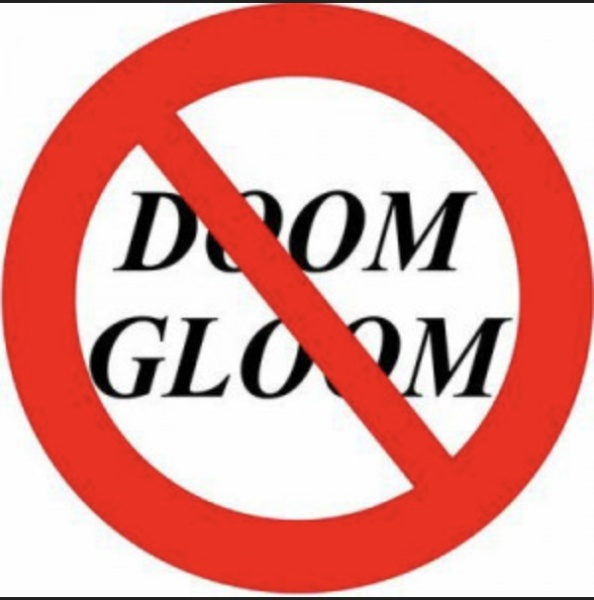
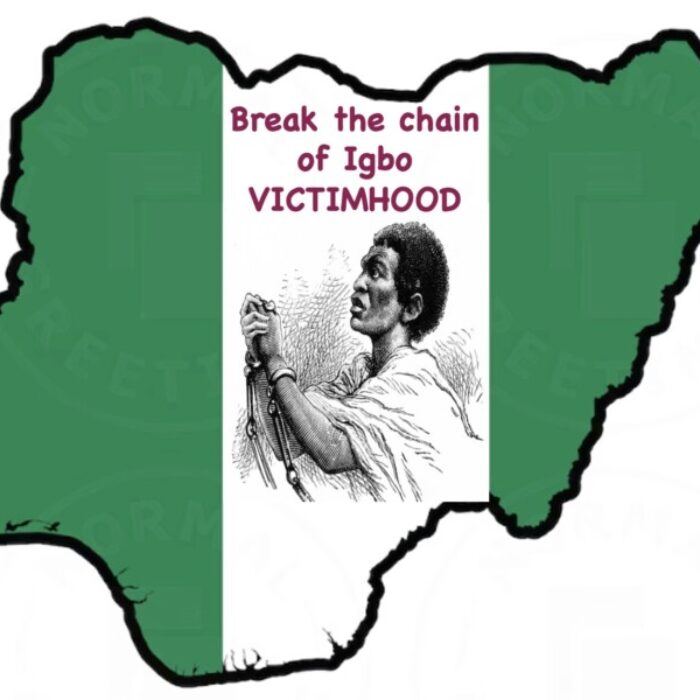
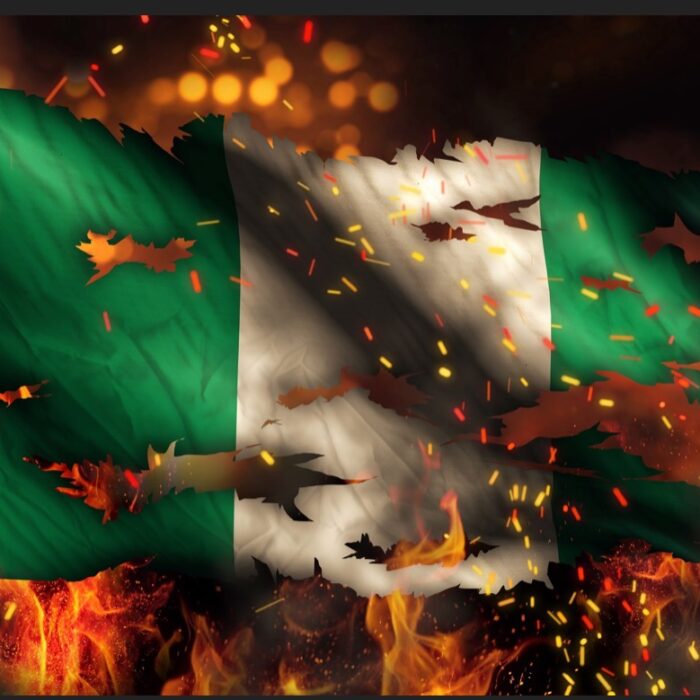
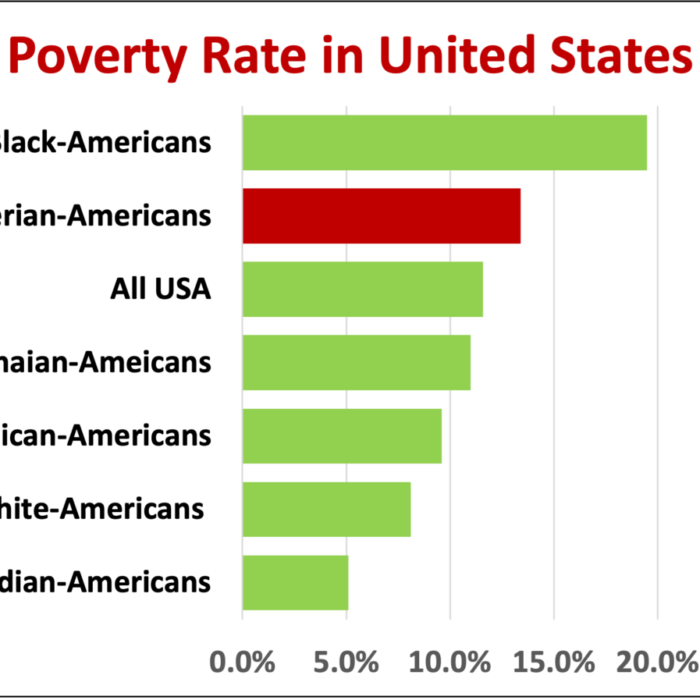
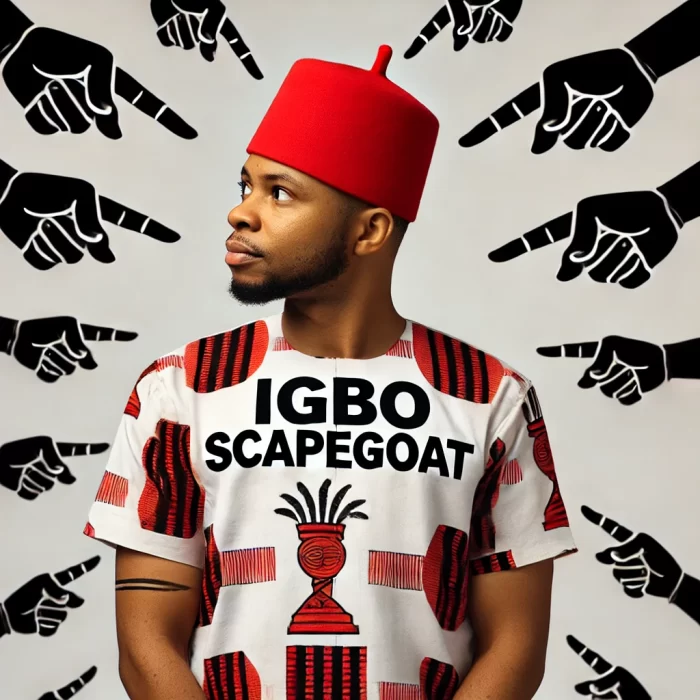
This is a great write-up presenting the true reflection of what’s happening in the country. However, there is also another group of people who are neither pessimistic nor optimistic. This group has totally given up on the situation of the country and are just hanging there. They say little or nor on the situation but rather remain mute. Their silence is as result of impact the country situation have had on them either positively or negatively.
I read the article 3 times and it was like an epiphany for me. I even sent the link to some of my former colleagues at a local newspaper in Abuja.
Like most typical Nigerians, I have had cause to be pessimistic about the current situation in the country. Everyone is really fed up. The high level of insecurity, the dwindling economy, lack of access to affordable quality healthcare, inept and corrupt leadership are reasons enough to make me want to see no light at the end of this particular tunnel. I have never considered that I can also be an agent of change, because we spend each day lamenting about the state of the nation. We just don’t want to take responsibility. The kidnappers, terrorists and other criminal elements are mostly not government officials. Most of the difficult situations we face are still caused by us. I pray to work on myself to henceforth see and pronounce things differently.